Constitution
Declaration of Independence – what it means
The Declaration of Independence sets for many guiding principles too many Americans have forgotten. It’s time to remember them.
Today is Independence Day in America. Most Americans will likely mark this day with cookouts, parades, and fireworks. But the time has come for sober reflection, and a fresh commitment to the values the Declaration of Independence represents.
Controversy surrounding the Declaration of Independence
Controversy attended the very writing of the Declaration of Independence. Thomas Jefferson wanted to include, in his list of grievances against King George III, an anti-slavery grievance.
He has waged cruel war against human nature itself, violating its most sacred rights of life and liberty in the persons of a distant people who never offended him, captivating & carrying them into slavery in another hemisphere or to incur miserable death in their transportation thither. This piratical warfare, the opprobrium of infidel powers, is the warfare of the Christian King of Great Britain. Determined to keep open a market where Men should be bought & sold, he has prostituted his negative for suppressing every legislative attempt to prohibit or restrain this execrable commerce.
And that this assemblage of horrors might want no fact of distinguished die, he is now exciting those very people to rise in arms among us, and to purchase that liberty of which he has deprived them, by murdering the people on whom he has obtruded them: thus paying off former crimes committed again the Liberties of one people, with crimes which he urges them to commit against the lives of another.
Jefferson was partly right. True, George III did not start the slave trade. But not until well after the War for Independence did Parliament do anything about it. Notice also the reference to “infidel powers,” meaning Muslim nations.
The hypocrisy question
But the Carolinas and Georgia threatened to walk out and vote “Nay” until Jefferson took it out. Perhaps they pointed out even then that the New England colonies, especially Massachusetts, took part in the slave trade themselves. Jefferson himself was vulnerable on that point; he would own slaves until the day he died. (Slavery first ended on Mount Vernon in 1799, in George Washington’s will and at his widow’s immediate orders.) To sort out the tension between slavery and a declaration for liberty, Americans eventually fought the War Between the States.
Even today many people cite the apparent hypocrisy of Jefferson, and the failure to repudiate slavery in 1776. They seek, of course, to repudiate the Declaration of Independence. Of course, without the Declaration, the United States itself would not exist. And for some, that’s the idea.
But the Declaration remains – and no less an authority than Justice Clarence Thomas has cited it officially in opinions. As well he might, because it stands as part legal brief and part proclamation. So it has at least as much standing as the Constitution, as a source of common legal principles for Americans.
Declaration of Independence – analysis
One can read the text of the Declaration of Independence at this link from the National Archives. What follows are the principles it sets forth, and what they should mean to us today.
The Declaration of Independence refers repeatedly to God, as “nature’s God,” “Creator,” “Supreme Judge,” and “Divine Providence.” That clearly shows that God was Real to the Founders.
The Declaration also spoke of an equal station for everyone. Again, it would take a War Between the States to make that real, but the principle is no less real.
The Declaration spoke of “inalienable rights,” including “life, liberty and the pursuit of happiness.” James Madison, in the Bill of Rights, would change that last phrase to “property.” (See the Due Process Clause of the Fifth Amendment.) Justice Sam Alito did not go so far as to find a right to life in the Constitution. (Dobbs v. Jackson Women’s Health Organization, 19-1392.) But he did clearly show that, in American law, life began as soon as it was detectable during pregnancy. Only because no one has yet sued, say, the State of New York on behalf of preborn children in that State, could anyone say that the Supreme Court was not in a position actually to find a right to life. The question before the Court in Dobbs was whether any State could forbid an elective end of pregnancy before “viability.” Preborn life never came up.
What do we have government for?
Next, the Declaration of Independence tells us:
- We have government to secure the inalienable rights of human beings,
- Governments “[derive] their just powers from the consent of the governed,” and
- When governments deny these rights, the people may abolish and replace them.
The Declaration went on to point out that one does not overthrow one’s government lightly. One does so only in the face of a prolonged totalitarian program, and only after exhausting all other remedies. Jefferson went on to show both elements; hence the Grievances or “He Has” List.
The Grievances do more than prove the case for revolution. Individually, they inform many of the provisions in the Constitution, among them:
- An independent judiciary, on salaries that do not depend on the President alone,
- The Third or Anti-Quartering Amendment, and
- Civilian control of the military (in that the President is Commander in Chief of the armed services).
But those Grievances contain others that could be grievances against our present government. Consider, for example:
He has erected a multitude of New Offices, and sent hither swarms of Officers to harrass our people, and eat out their substance.
The Alphabet Soup Agencies could certainly qualify. As it is, the Supreme Court recently set a boundary that, from now on, no agency may cross. (West Virginia v. EPA, 20-1530, and consolidated cases.) Some even question the exercise of the taxing power, and whether it goes beyond the purposes in Article I Section 8 Clause 1.
A grievance not only against a government but against its supporters
Before Jefferson arrives at the effective part of the Declaration of Independence (“Free and Independent States”), Jefferson makes clear that Americans had a grievance, not only against the Crown, but against His Majesty’s Loyal Subjects. Few people read the “In every stage” paragraph which sets forth the grievance against the Crown. But how many people have read the “Nor have we been wanting in attention” paragraph that follows?
Couldn’t we write such a paragraph today? Haven’t those who love human liberty, warned those wanting “free stuff” and “bully rules” that these are not good ideas? Certainly we have reminded them of this very Declaration and the ensuing war. Likewise we have “appealed … to native justice and magnanimity.” Furthermore we have asked such people, as fellow Americans, to disavow the “nanny and Woke state.”
Have our opponents been “deaf to the voice of justice and consanguinity”? Well, how else does one explain such behavior as
- “Cancel culture,”
- Unlawful picketing before the homes of Justices of the Supreme Court,
- Demanding their removal from the bench – or worse – for their defenses of liberty (after West Virginia as well as Dobbs),
- Selective application of the law, and
- Protest gestures too obscene even to mention, much less describe, in polite company?
The Great Sortation and the Civilizational Imperative
In summary, the Declaration of Independence has many messages that too many Americans today ignore. In fact, a Great Sortation is now under way, and likely will accelerate. Those who embrace key values of a civilizational state have already started migrating to sympathetic States. But we now also see people who reject civilizational values, migrating to States sympathetic to them. This obviously recalls the “national divorce” prescription of Rep. Marjorie Taylor Greene (R-Ga.).
If the boundaries between “red” and “blue” come close to being contiguous, pressure for that national divorce will only mount. They are not contiguous today, but might become so, or more nearly so, after Midterms.
But if the two sides can keep peace between them, then the civilizational side will win. Already those on the anti-civilizational side are actually opting for sterilization. We see it particularly among men, especially after Dobbs, which shows how those men have devoted themselves to “hookup culture.” But in Woke populations, men and women both opt for sterilization on the theory that
Mother Earth groans with the birth of every child.
So those who love human life and liberty, will be having all the children. In a generation or two, they will inherit, if not the Earth, then at least the territory of what will become an American civilizational state. The values of the Declaration of Independence will live on, beginning with that generation.
Terry A. Hurlbut has been a student of politics, philosophy, and science for more than 35 years. He is a graduate of Yale College and has served as a physician-level laboratory administrator in a 250-bed community hospital. He also is a serious student of the Bible, is conversant in its two primary original languages, and has followed the creation-science movement closely since 1993.
-
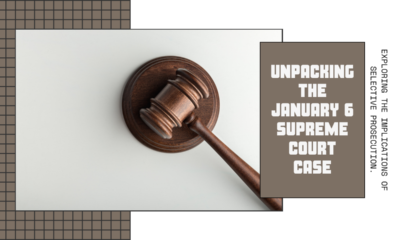
 Executive2 days ago
Executive2 days agoJanuary 6 case comes down to selective prosecution
-
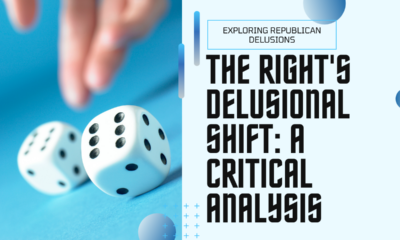
 News2 days ago
News2 days agoRolling the Dice on Republicans: Has the Right Become Delusional?
-
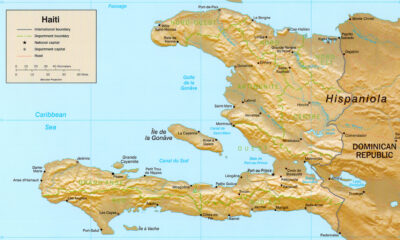
 Civilization1 day ago
Civilization1 day agoPresident Biden Must Not Encourage Illegal Mass Migration From Haiti
-

 Executive1 day ago
Executive1 day agoWhy Fatal Police Shootings Aren’t Declining: Some Uncomfortable Facts
-
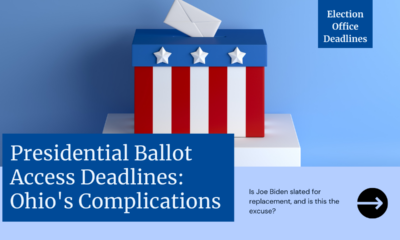
 Executive18 hours ago
Executive18 hours agoBiden ballot woes continue
-

 Guest Columns1 day ago
Guest Columns1 day agoWhat Was Won in No Labels’ Crusade
-

 Entertainment Today1 day ago
Entertainment Today1 day agoWaste of the Day: Throwback Thursday: Millions Went To Video Game ‘Research’
-

 Constitution1 day ago
Constitution1 day agoEquality Under the Law and Conflicts of Interest in New York



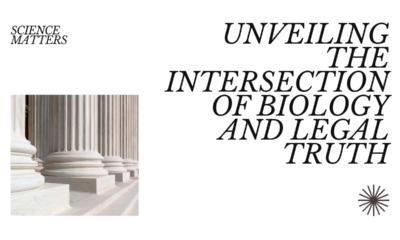



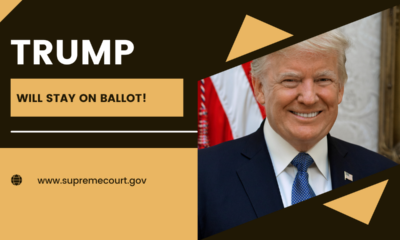



[…] Jefferson wrote that the function of government is to protect our rights […]